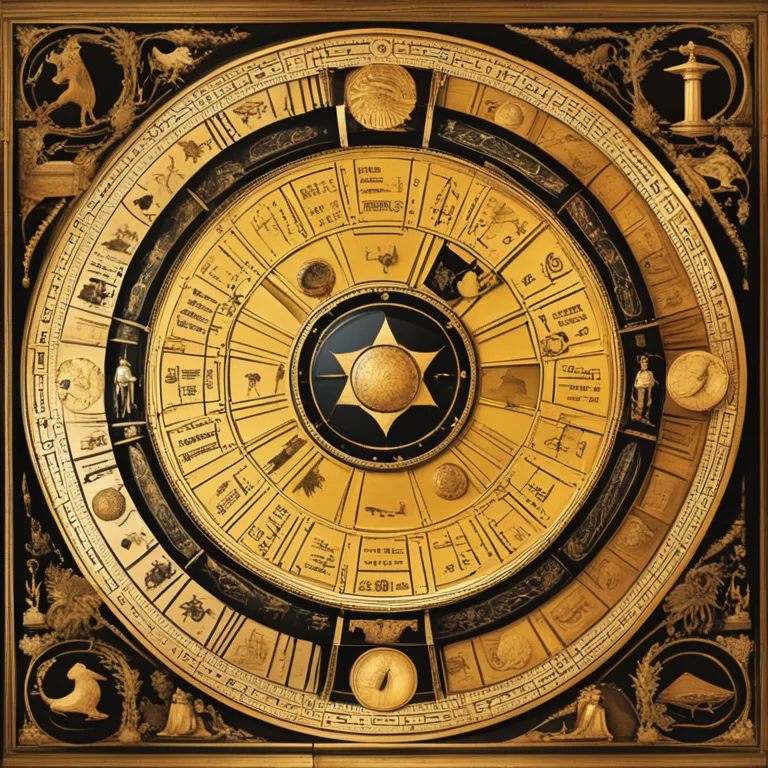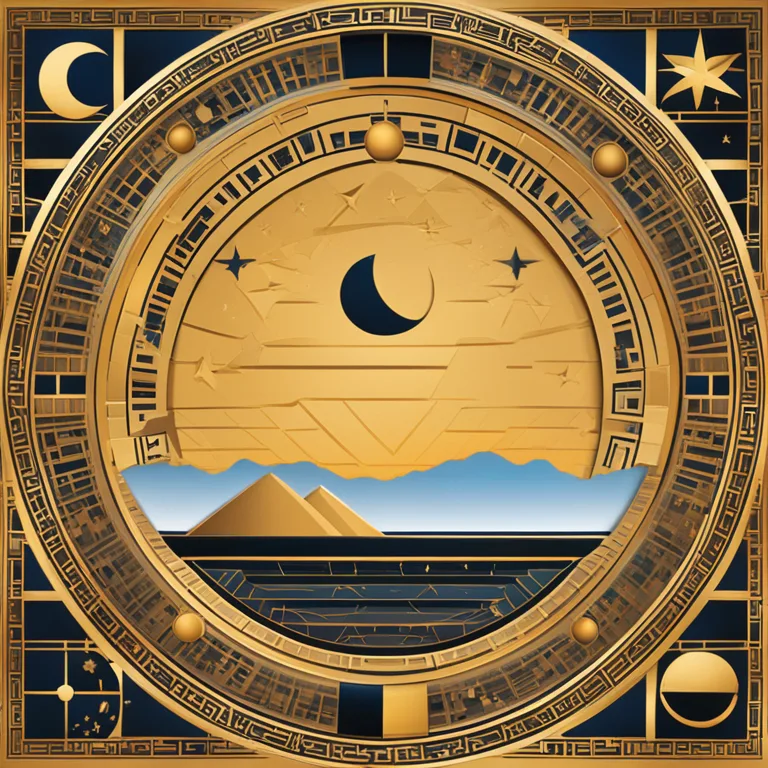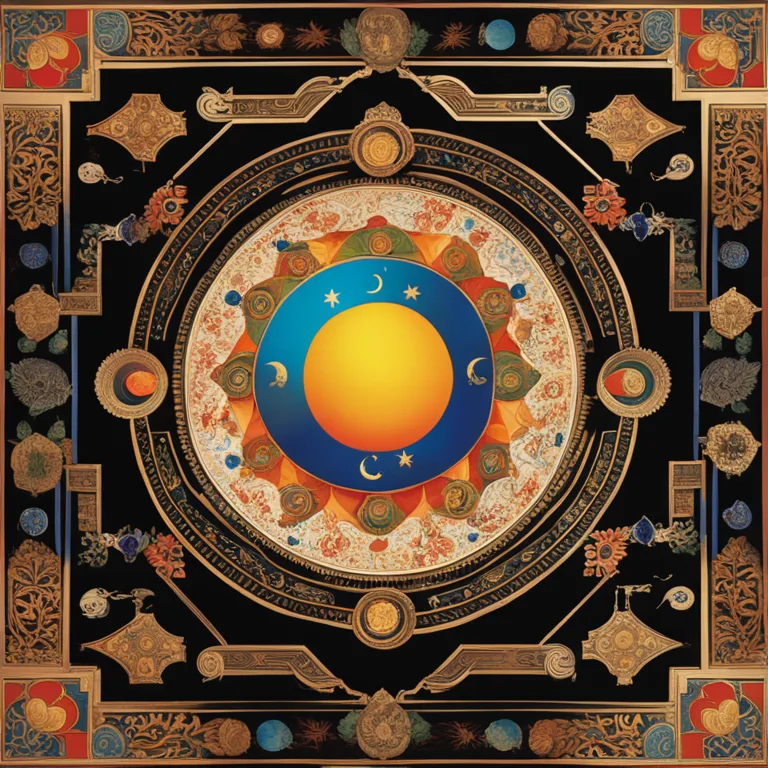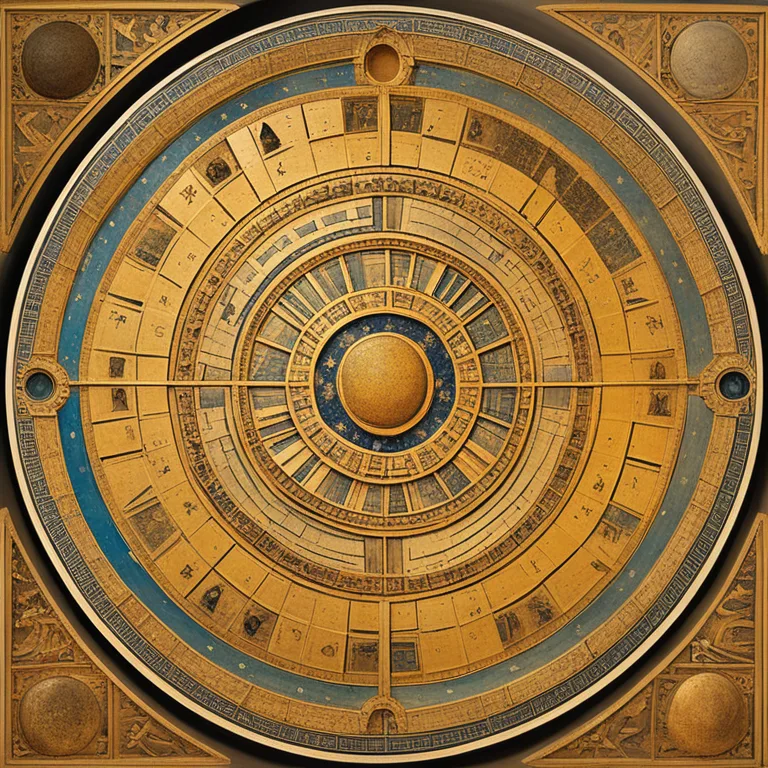
The Origins of Astrology: A Historical Insight
Traverse the ancient pathways to uncover the historical beginnings of astrology and how it has evolved into the practice we recognize today.
article by Priya Deshmukh
Ancient Beginnings
The roots of astrology trace back to several ancient civilizations, intertwined with their quest to understand the celestial patterns above. Amidst the cradle of civilization, the Babylonians, around 2nd millennium BC, are credited with forming the first organized system of astrology. They meticulously recorded planetary movements, interpreting these observations as divine messages. Their work provided the foundation for what would spread and evolve across cultures and continents.

Egyptian Influence and Hellenistic Flourish
The torch of astrological wisdom was subsequently passed to the Egyptians, who fused Babylonian astrology with their own religious beliefs, crafting a cosmology that aligned stars with their deities. However, it was the Hellenistic period, particularly in Alexandria, where astrology as we know it truly bloomed. Greek influences merged with Babylonian and Egyptian knowledge, culminating in the creation of the Zodiac and the horoscope system, which analyzed individual destinies based on celestial patterns at birth.

The Horoscope and Beyond
The Romans adopted and adapted Hellenistic astrology, integrating it into their own pantheon and daily life. By this time, astrology had bifurcated into two primary schools: one that declared celestial bodies influenced human affairs (mundane astrology) and the other focusing on the individual's fate and personality (natal astrology). This dual approach laid the groundwork for the rich tapestry of modern astrological practice, from crafting 2024 horoscopes to analyzing long-term trends in coming years.

Astrology's Cultural Journey
Astrology's reach extended across the Silk Road to India and China, developing unique characteristics in each locale. Indian astrology, or 'Jyotish'—the science of light—emphasizes karmic patterns and life cycles, strikingly different from Western traditions. Chinese astrology introduced a twelve-year animal zodiac, each year linked to specific personality traits, offering a different system to discern one's fate or compatibility with others.

Medieval Renaissance and Scientific Scrutiny
The fascination with astrological practice surged in the Medieval period, with scholars like Claudius Ptolemy influencing Islamic and European thought. Astrology's entwined relationship with astronomy persisted until the Enlightenment and the Scientific Revolution began to question and separate empirical science from the metaphysical interpretations of astrology. Despite this, astrology's appeal endured, evolving into modern psychological and spiritual frameworks.
Astrology in Contemporary Times
Today's practice of astrology retains the richness of its varied heritage, emerging as a tool for introspection and guidance. With the advent of the Internet and digital computation, astrological calculations and forecasts have gained precision and reached a wider audience. Personalized horoscopes for 2024 and beyond are now accessible at the click of a button, featuring intricate details about love, health, prosperity, and biorhythms, guided by the age-old wisdom of the stars.
Published: 12/29/2023
Modified: 12/29/2023
More predictions
Come back here soon to learn more about yourself and your future


Birth Charts: A Beginner's Guide Explored
Delve into the basics of birth charts, the celestial snapshot of your potential. Learn how they influence personality and life in our beginner's guide.


Birth Chart: The Powerful Role of Jupiter
Explore the powerful role of Jupiter in astrology and its profound impact on our personal growth, luck, and life philosophy in the birth chart.


Birth Chart & Predicting Marriage
Discover the potential of birth charts in forecasting matrimonial bliss and partnerships, with a cosmic lens on future commitments.